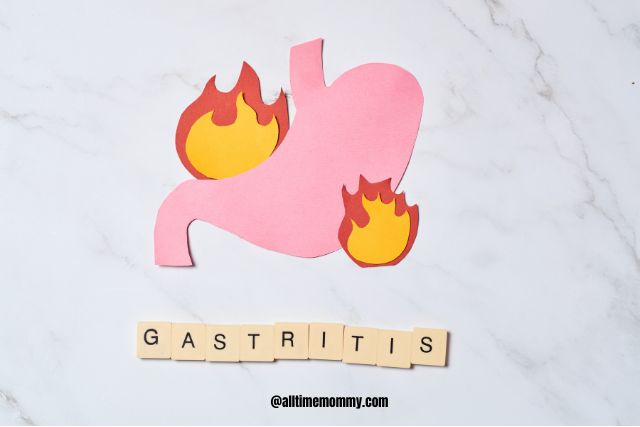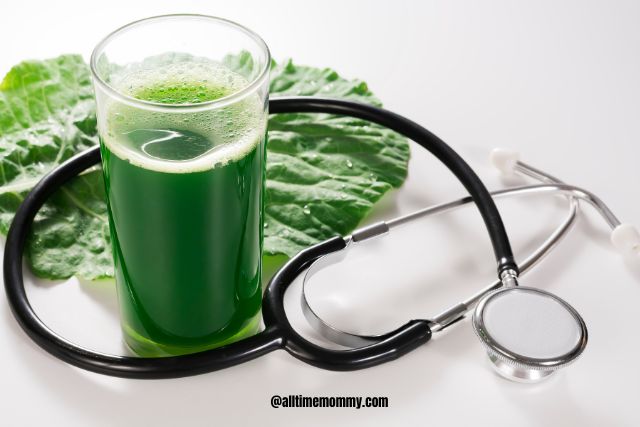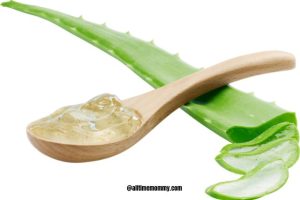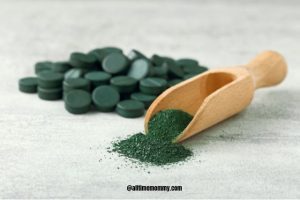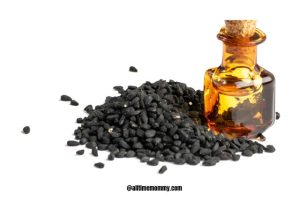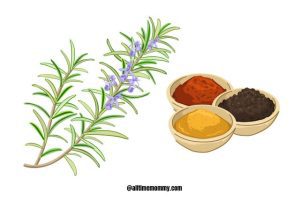Stomach ulcer is a digestive disorder that affects many people all over the world. It is a lesion of the upper gastrointestinal tract mucosal lining.
These lesions may result from an imbalance of aggressive and protective factors in your system.
According to 2019 research, 8.09 million people have suffered from stomach ulcers globally. This represents a 25.82% increase from 1990.
But what could be contributing to the rising numbers?
Researchers attribute the high increase in gastrointestinal ulcers to various factors. These factors may include poor living conditions, diet, and non-steroidal anti-inflammatory drug use.
What Causes Stomach Ulcers?
Stomach ulcers may result from an imbalance between aggressive and cytoprotective factors in your gastrointestinal system.
Aggressive factors are elements that negatively affect your normal digestive tract functioning. They include
- hydrochloric acid,
- bacteria like Helicobacter pyloriinfection,
- excessive intake of anti-inflammatory drugs,
- alcohol,
- pepsin
- reactive oxygen species;
While cytoprotective factors are natural elements that protect your system and make it function optimally. These factors include
- mucus,
- bicarbonate,
- prostaglandins,
- blood flow,
- cellular repair,
- enzymatic and non-enzymatic antioxidants
An imbalance between these two factors will result in the formation of a lesion of the mucosal lining.
According to Mayo Clinic, your digestive tract has a mucous layer or lining. The function of this lining is to protect your system against excess stomach acid.
If mucus decreases the protection is compromised.
Similarly, if the acid increases, it may result in erosion of your intestinal layer, causing pain or bleeding.
These unpleasant reactions in your stomach are what are deemed as stomach ulcer symptoms.
What are Stomach Ulcers Symptoms?
- Burning senses above your navel or abdomen. This burning and gnawing pain in the center of the tummy may be on and off depending on your triggers, like food or stress levels.
- The feeling of funny indigestion symptoms. After eating, you may feel like the digestion is too slow or that food is still in your tummy.
- Persistent heartburn and acid reflux
- passing excessive amounts of gas,
- vomiting
- abdominal discomfort
- fatigue and nausea
What Do Stomach Ulcers Feel Like?
The inside wall of the stomach is protected from acid and enzymes by a mucous intestinal lining. Ulcers are caused by excess acid production or less mucus to protect your stomach lining.
Symptoms of ulcers may start with indigestion, acid reflux, and a burning pain in the upper abdomen. As it persists, you may begin to feel nauseous, vomiting, and sickly. Some people also pass excessive gas accompanied by abdominal discomfort.
Affiliate Disclosure: As an Amazon Associate, I get a small commission for purchases made from Amazon.com through links in this post. Learn more about our affiliate disclaimer here.
13 Best Remedies for Stomach Ulcer That Actually Work
There are 3 main goals of treating stomach ulcers. First you must relieve pain, heal your gastrointestinal system, and prevent ulcer recurrence.
This article highlights the best remedies for stomach ulcers. We give you tips on how to lower the risk of getting this infection. Followed by remedies for treating and how to prevent the recurrence in future.
Ready to learn? Let’s dive in.
1. Take Ulcer Dietotherapy To Prevent Stomach Ulcers
According to a study, your nutrition is crucial in reducing your risk of developing a stomach ulcer in the first place.
- Eating a soluble fiber-rich diet may be your first route.
Why?
Fibers act as buffers. They reduce concentrations of bile acids in the stomach. This results in less abdominal bloating and comfort. To be safe, eat unrefined grains like oats, barley and psyllium. Also eat peas, beans, apples, carrots.
- Eat antioxidant-rich foods
Antioxidants are foods with compounds that inhibit oxidation. They also preventing cell damage in your body. To reduce the risk of developing ulcers, eat variety of antioxidant. Eat plant-based foods like blueberries, green leafy vegetables, cocoa, and beans.
- Use probiotics generously
Probiotics are live microorganisms that you can find in food or supplements. Probiotics have therapeutic agents against H. pylori. While they don’t eradicate H. pylori, they significantly reduce the bacterial load and infection. Get your best probiotic here.
- Consume vitamin C consistently.
Vitamin C is best known for immune strengthening.
But that is not all.
Studies suggest that vitamin C has important effect on the edification of bacteria. This is more specific especially in patients with peptic ulcers.
Try to eat smaller doses of vitamin C for longer period like 3 months.
Why?
Research shows eating these vitamins for a long period responds better in patients with peptic ulcer by H. pylori compared with consuming higher doses at once.
Taking up to 500 mg/day of vitamin C for three months may be just what you need to feel better.
Good sources of vitamin C include Kakadu plums, acerola cherries, and citrus fruits.
- Increase consumption of fruits and vegetables, at least three servings per day
- Eat vitamin A from all sources.
Related:
8 Best Home Remedies For Vaginal Itching
How To Curb Your Sugar Cravings Fir Good
2. Drink Fresh Cabbage Juice To Heal Stomach Ulcers
Cabbage juice is often considered a natural remedy for stomach ulcers.
In fact, studies suggests that patients using fresh cabbage juice for peptic ulcers received rapid healing in fewer days. This is compared to patients on standard therapy.
According to this research, cabbage juice contains an antiseptic ulcer factor. The (vitamin U) in fresh cabbage prevents the development of histamine-induced peptic ulcers. Which may be the main reason why patients using this therapy heal faster.
Additionally, It’s a rich source of vitamin C. . This vitamin is an antioxidant known for its efficacy in preventing and addressing H. pylori infections. These bacterial infections are the leading cause of stomach ulcers.
How to make cabbage juice for ulcers
- one cabbage (preferably green)
- six stalks of fresh celery
- 2-4 fresh carrots
- A juicer or blender
How do you make your cabbage juice for ulcers?
- Wash and Rinse your vegetables ( cabbage, celery, carrots) with clean water
- chop into smaller pieces all your ingredients. (1 head of cabbage, stalks of celery, and carrots )
- Blend the ingredients for 1-2 minutes. Press one ingredient at a time if you’re using a fruit juicer.
- Drink your juice fresh
Important Things To Note
- Cabbage, celery, and carrots are the best ingredients for fighting stomach ulcers.
- Like cabbage, celery is full of anti-peptic ulcer factors. It’s also fiber-rich with vitamins K, A, and C.
- Carrots also contain chemical properties to help protect against and heal ulcers. They are good sources of potassium and vitamin A.
- I preferred having a mixture of at least 75 per cent cabbage juice, 20 per cent fresh celery (stalk and greens) and 5 per cent carrots. However, you may do 100 per cent cabbage juice.
- I prefer blending because smoothies contain fiber, which is beneficial for digestion.
- Take at least a litre of fresh cabbage juice daily. You can do this in bits, in the morning on an empty stomach, at midday and night until you feel better.
- Drink your juice as soon as it’s done. As a rule of thumb, make fresh juice every day.
- Alternatively, pour your juice into an air-tight bottle and store it in the fridge. Just make sure to drink it within one day.
Who should NOT drink Cabbage Juice
- Cabbage is a cruciferous vegetable and can affect your thyroid functions. Consult your doctor before starting this therapy, especially if you have a thyroid condition.
- Do not heat your cabbage or ingredients, as the anti-peptic ulcer factor is readily destroyed by heat
- Start with a small quantity and adjust Slowly. Cabbage juice may cause mild abdominal distress and some constipation, especially if you have gastrointestinal issues. You may use milk of magnesia to counteract this symptom.
Cabbage juice is naturally high in the amino acid glutamine. This compound is also crucial in maintaining a healthy stomach and intestinal mucosal lining, which acts as a protective barrier against acid-causing ulcers.
Related:
12 Little Known Weight Loss Hacks That Actually Work
3. Aloe Vera Gel To Keep Stomach Acid At Bay
Aloe vera is a cactus herb that grows in warm climates. Its gel has been traditionally used for various medicinal purposes for many years.
According to a study, aloe vera contains anti-inflammatory properties. These compounds increases IL-10, an important cytokine for the wound healing process.
Also, Aloe vera gel has gastroprotective properties. Drinking aloe vera can significantly reduce the amount of stomach acid associated with stomach ulcers.
Furthermore, other studies indicate that aloe vera had ulcer-healing effects similar to omeprazole, a common anti-ulcer medication.
Additionally, Aloe vera has some antibacterial properties. It may help in preventing and controlling bacterial infections. This includes (H. pylori) infections ,which is associated with stomach ulcers.
How do you make aloe vera juice for stomach ulcers?
- Take a branch of the aloe vera plant and wash it well.
- Using a sharp knife, cut it open lengthwise and take the jelly-like substance in the middle. Ensure you get rid of the yellowish exudate.
- Now take two heaped tablespoons of the jelly and mix it with some buttermilk to make about 20ml of the mixture.
- Begin with a dose of two tablespoons per day to see how your body reacts.
Do you want to give it a try? Shop Now
4. Zinc Carnosine Supplements To Restore Your Gastric Lining
Zinc carnosine is a mucosal protective compound made of zinc and L-carnosine. This supplement is widely used in Japan and South Korea for gastrointestinal issues.
The main component of this supplement is zinc and L- carnosine.
- Zinc is an essential mineral. It plays a crucial function in body processes, including wound healing and cell development.
- L- carnosine is an amino acid compound. This compound has antioxidant and muscle-building properties. Its mainly found in our brain, muscle, and gastrointestinal tissues.
According to research, Zinc L- carnosine can promote repair and healing of intestinal walls. It also increases mucosal secretion.
As such, this supplement has proven effective in the treatment of peptic ulcers.
Taking Zinc L-carnosine promotes intestinal damage repair and esophagitis. It inhibits H pylori activities, aids in the repair of damaged epithelial cells and inhibits stomach inflammation.
It also accelerates the healing of ulcerative colitis, iatrogenic ulcers, hemorrhoidal disease and impaired intestinal permeability.
Dosage.
Take 50 mg of zinc-carnosine supplement three times a day.
Do you want to give it a try? Shop Here
5. Take Spirulina for NSAID Drug Induced Gastric Ulcer
Spirulina belongs to the blue-green algae class. Most people take this microalgae as a dietary supplement for various reasons.
According to studies, this herb possesses numerous antioxidant, anti-inflammatory and immunomodulatory properties. These compounds play crucial roles in human health.
It helps prevent cardiac hypertrophy, heart failure, and hypertension.
But that is not all.
According to Science Direct, taking Spiruline supplements may also help you to heal NSAIDs drug-induced gastric ulcers.
One study was carried out to evaluate the effect of Spirulina against an aspirin-induced gastric ulcer in albino mice. It was concluded that Spirulina has therapeutic potential in aspirin-induced gastric injury.
It helps to alleviate oxidative stress and inflammation, thus easing pain.
The findings showed Spirulina contained biliprotein C-phycocyaninthat . This compound has antioxidant activity which scavenges on aggressive compounds in your stomach.
In conclusion, this study demonstrates that Spirulina can stop aspirin-induced gastric mucosal injury. It provides a cytoprotective defenses and alleviates stomach inflammation.
Do you want to give it a try? SHOP HERE
Related:
9 Best Food That Prevents Common Colon Problems
6 .Take Neem Bark Extract Supplement to control Gastric Hyperacid Secretion
Gastric acid hypersecretory is a condition that increases the risk for peptic ulcer disease.
And not just that.
It can also cause gastroesophageal reflux disease (GERD) and gastrointestinal bleeding.
According to a study, neem bark aqueous extract has potent anti-acid secretory and antiulcer effects. It can help regulate stomach acid production. Doing so potentially prevents stomach ulcers’ development or worsening.
In fact, one study engaged six participants. This people were to take dose of 30 mg twice daily of the lyophilized Neem powder extract. After 10 days researchers found that participants had a significant reduction in acid-related problems .
The Neem powder extract had suppressed gastroduodenal ulcers.
Almost wholly healed the duodenal and gastric ulcers
Enhanced the control gastric hyperacid secretion and gastroesophageal and gastroduodenal ulcers.
Related:
How To Prevent UTIs Naturally : 9 Best Home Remedies for Urinary Tract Infection
7. Chew On Raw Black Seed To Prevent Gastric Ulcer
Black seed, known as Nigella Sativa, is a shrub that grows in Eastern Europe and Western Asia.
One research suggests that “Black seed” can significantly help prevent gastric ulcer formation.
Why?
The primary ingredient in black seed is the TQ chemical component (thymoquinone ). This compound has a cytoprotective ability to significantly prevent gastric ulcer formation, especially those induced by necrotizing agents.
Additionally, using black seed with honey has shown some levels of anti-H Pylori effects. It can reduce the intensity of damage these bacteria may have on your stomach.
How to take black seed for ulcers
- Chew a few Black seeds (whole) on an empty stomach.
- Mix 6 g of ground seeds per day with 12 g of honey daily. Take one tablespoon of this mixture 3 times daily after meals for two weeks.
Available on Amazon
Related:
Best Remedies For Constant Vaginal Itching Before Period Starts
8. Licorice Roots For Protecting Your Stomach Lining
Licorice is a folk medicine for the treatment of stomach disorders.
Interestingly, the licorice plant was mainly used in ancient Egypt. The root was made into a sweet drink for pharaohs to enjoy.
Many traditional healers ascertain that the herb possesses medicinal properties for treating upper respiratory issues. It also soothes an upset stomach, and can reduce inflammation.
Today, modern studies show that licorice contains an antiulcer compound. This herb can stimulate your digestive system to produce more mucus. which helps protect the stomach lining.
Licorice root contains the chemical compound glabridin. This is an antibacterial compound that disrupts H. Pylori’s DNA synthesis and, causes cell death.
Licorice root also plays a protective role against acid, H Pylori infection and pepsin secretions. Additionally, it may promote stomach healing by covering the site of the lesion and increasing the mucous secretion against acid.
Related:
12 Best Anti-inflammatory Herbs For Menstrual Cramps Fast Relief
9. Wheatgrass Juice for Stomach Ulcer
The wheatgrass juice comes from the freshly sprouted leaves of the wheat plant, Triticum aestivum.
Most people grow and prepare this juice at home. But you can still purchase the juice, powder, or a supplement form.
According to a study, wheatgrass juice has the potential to treat various gastrointestinal issues. In one animal study, wheatgrass juice was found to significantly reduce the formation of ulcers induced by ethanol.
Additionally, another research concluded that drinking about 1/2 cup (100 ml) of fresh wheatgrass juice for one month reduced disease severity and rectal bleeding in patients with ulcerative colitis.
Shop Now on Amazon
10. Alma juice for stress-induced gastric ulcers
Amla is a tree that bears small green fruits that may be sour, bitter, or astringent.
Amla fruits are high in vitamin C content, which supports immunity.
People have used Amla berries for years to treat stomach cramps and discomfort. Today, studies show that Amla extracts may help heal and prevent stomach ulcers.
For instance,
According to a Journal of Medicinal Plants Research publication, Alma can heal gastric ulcers.
Researchers found Amla to contain potent anti-ulcer compounds. The therapeutic properties of Alma include antipyretic, antibacterial, antiparasitic, antinociceptive, and antiviral activities.
The plant also provides gastroprotective effects against stress-induced, indomethacin- and histamine-induced gastric ulcers.
All these properties can inhibit the activities of H Pylori bacteria, a leading cause of gastric ulcers.
Additionally, another research shows you can use Amla extracts as a gastroprotective agent. This is specifically in nonsteroidal anti-inflammatory drug (NSAID)-induced gastropathy.
Why? Because of its high ant-oxidative properties. Amla can protect your lining against aggressive factors produced by anti-inflammatory drugs.
How to take Amla for stomach ulcers
Blend the fruits of Amla and drink the fresh juice. Additionally, you may get powdered supplements for extra nutrients.
Related:
How To Do a Natural Colon Cleanse at Home
11. Burdock root for gastrointestinal mucosa repair
Peptic ulcer is a gastrointestinal disease that causes mucosa erosion. Clinical trials suggest that burdock roots can help heal gastric mucosal lesions. According to this clinical trial burdock essence has an inhibitory effect on H. pylori in ulcer patients. In fact, you can get healed by taking two tablets (500 mg) thrice daily after meals.
Similarly, Another study confirms the same outcome.
In this study, 44 patients were used. 21 took the burdock essence compounds, while 23 did not.
After one month, (20/21) patients on burdock essence had negative results. Only one had positive results.
According to this research, burdock can enhance the protection of gastrointestinal mucosa. Its antibacterial property can heal the stomach lining in ulcer patients.
Do you want to give it a try? Grab an appropriate health supplement here.
12. Eat Broccoli Sprout To Confine H Pylori Effects
Broccoli Sprouts are baby broccoli of about 3-5 days old. These plants are normally small, with two green leaves on top. They are also a few inches long with white soft stems still attached to the seed.
Studies show that broccoli sprouts are nutritional powerhouses.
They contain sulforaphane compounds with a potent antibacterial effect against H. pylori bacteria.
According to a 6-week study, 50 people with gastritis caused by H. pylori found that consuming 2.5 ounces (70 grams) of 3-day-old broccoli sprouts per day reduced H. pylori infections and gastric inflammation. H Pylori bacteria is among the leading cause of gastritis, and stomach ulcers.
In another study, chemical compounds in broccoli sprouts were found to prevent lipid peroxidation in the gastric mucosa.
This means it plays a cytoprotective role in your stomach. It shields your stomach lining from H. pylori-induced gastritis.
Worthy to note however is just like cabbage, broccoli sprouts contain sulforaphane. This compound is believed to be goitrogens. Too much sulforaphane may alter your thyroid function. It can also affect your body’s ability to take iodine thus increasing the risk of hypothyroidism.
You can add the broccoli sprouts to your salad for a quick snack. But for the best result, blend a few grams with celery and carrots to make a good smoothie.
Related:
10 Warning Signs That You’re Eating Too Much Sugar
13. Check and Treat H. Pylori Bacteria
Helicobacter pylori, is a bacteria that infect the gastrointestinal system. If its not contained H. Pylori can cause peptic ulcers.
According to the Mayo Clinic, (H. pylori) infection is among the leading cause of stomach ulcers.
You may contact these bacteria through contaminated food, and water. Sometimes you can also get it through saliva exchange with an infected person.
Once it spreads in your gastrointestinal system, H. pylori can cause complications. The leading issue being ulcers and inflammation of the stomach lining. It can damage the protective lining of the stomach and small intestine. This, in turn, allows stomach acid to create an open sore, causing ulcers.
To be safe;
Eat more vitamin C. Research shows that high-dose vitamin C administration can inhibit the growth of H. pylori.
Have a reliable supply of clean
Maintain high hygiene regarding food preparation
Wash your hands with soap before eating.
Avoid living in crowded and unsanitary environments
Have family H. pylori checkups to avoid infecting each other
Treatment
H. pylori infection is typically treated with a combination of antibiotics. It’s essential to consult with your doctor, to prescribe appropriate antibiotics and guide you through the treatment.
Related:
14 Surprisingly Simple Ways To Losing Weight and Staying Healthy This Year
How To Prevent UTI: 9 Best Home Remedies For Urinary Tract Infect(UTIs)
DISCLAIMER The information contained in this post is for general information purposes only. I’m not a health practitioner and as such, this information should not be used as a substitute for consultation with your professional service provider.


